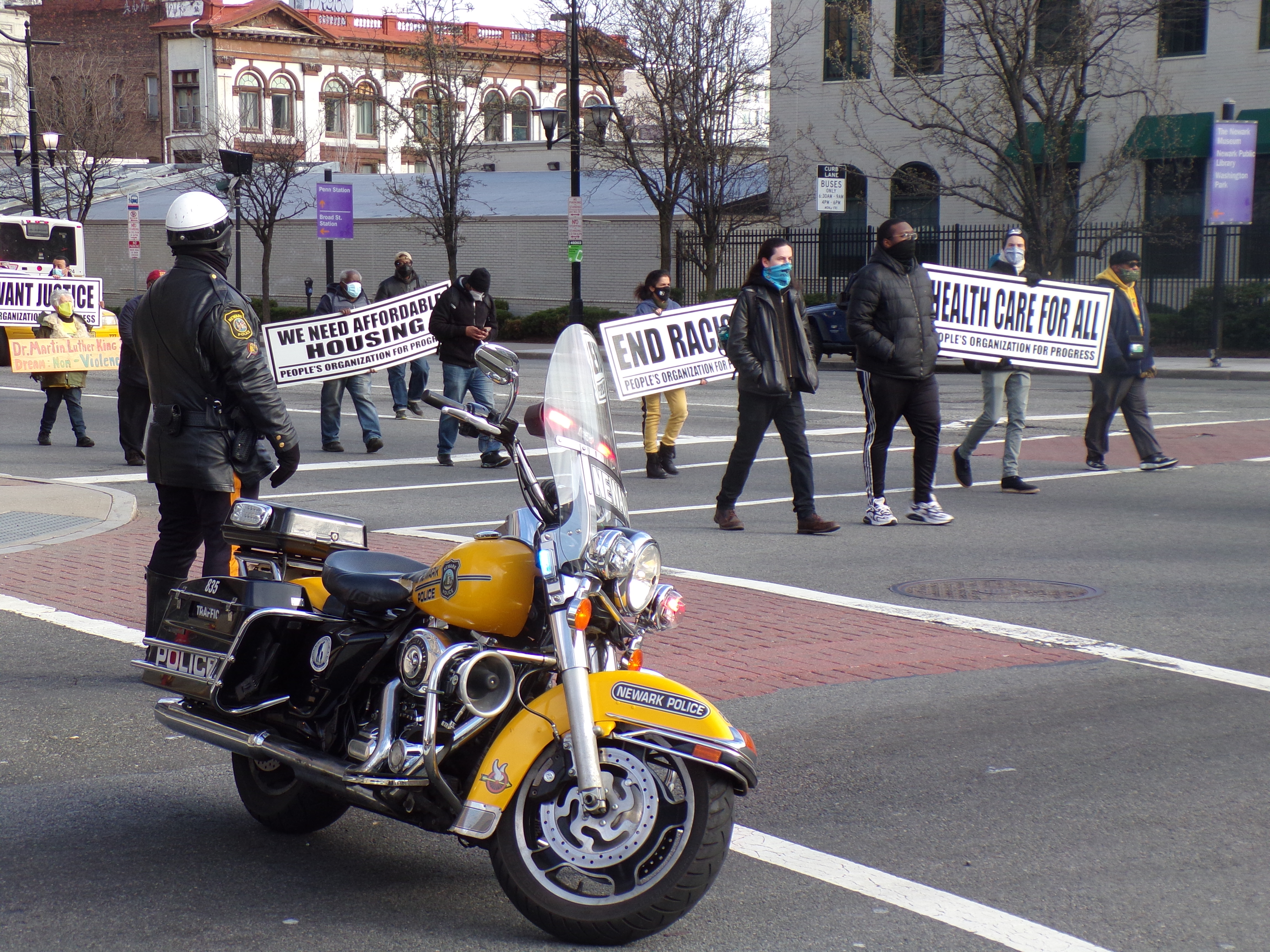On Anniversary of MLK Murder, Activists Take to the Newark Streets Protesting Voter Suppression, Amid Floyd Trial Trepidation
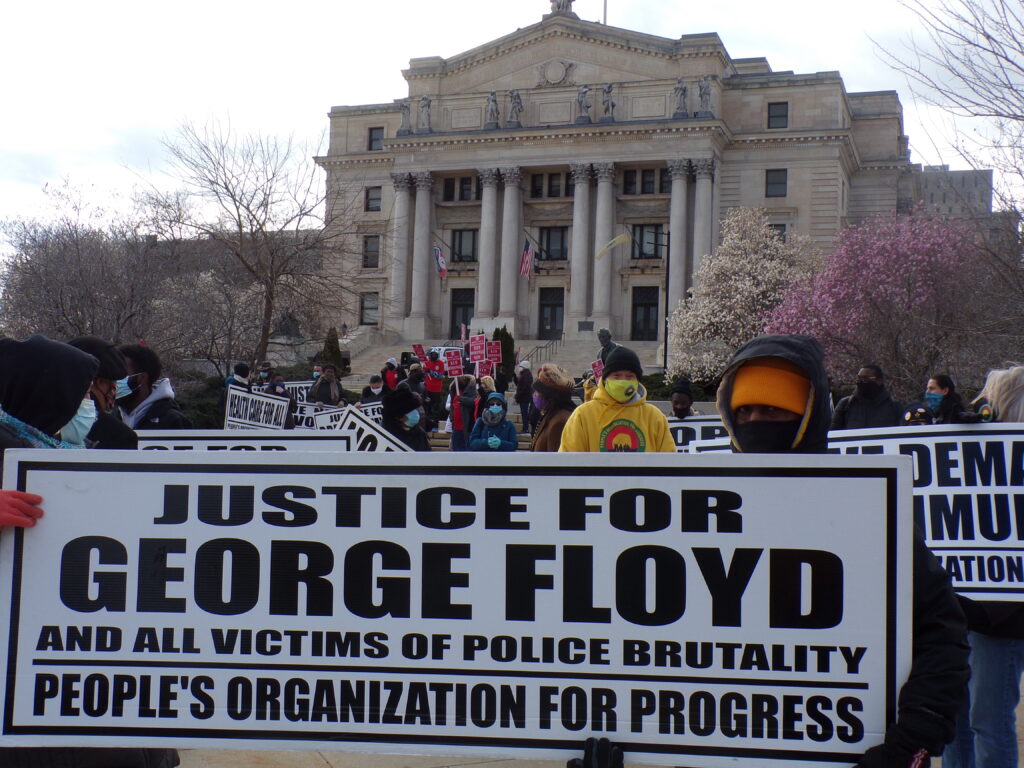
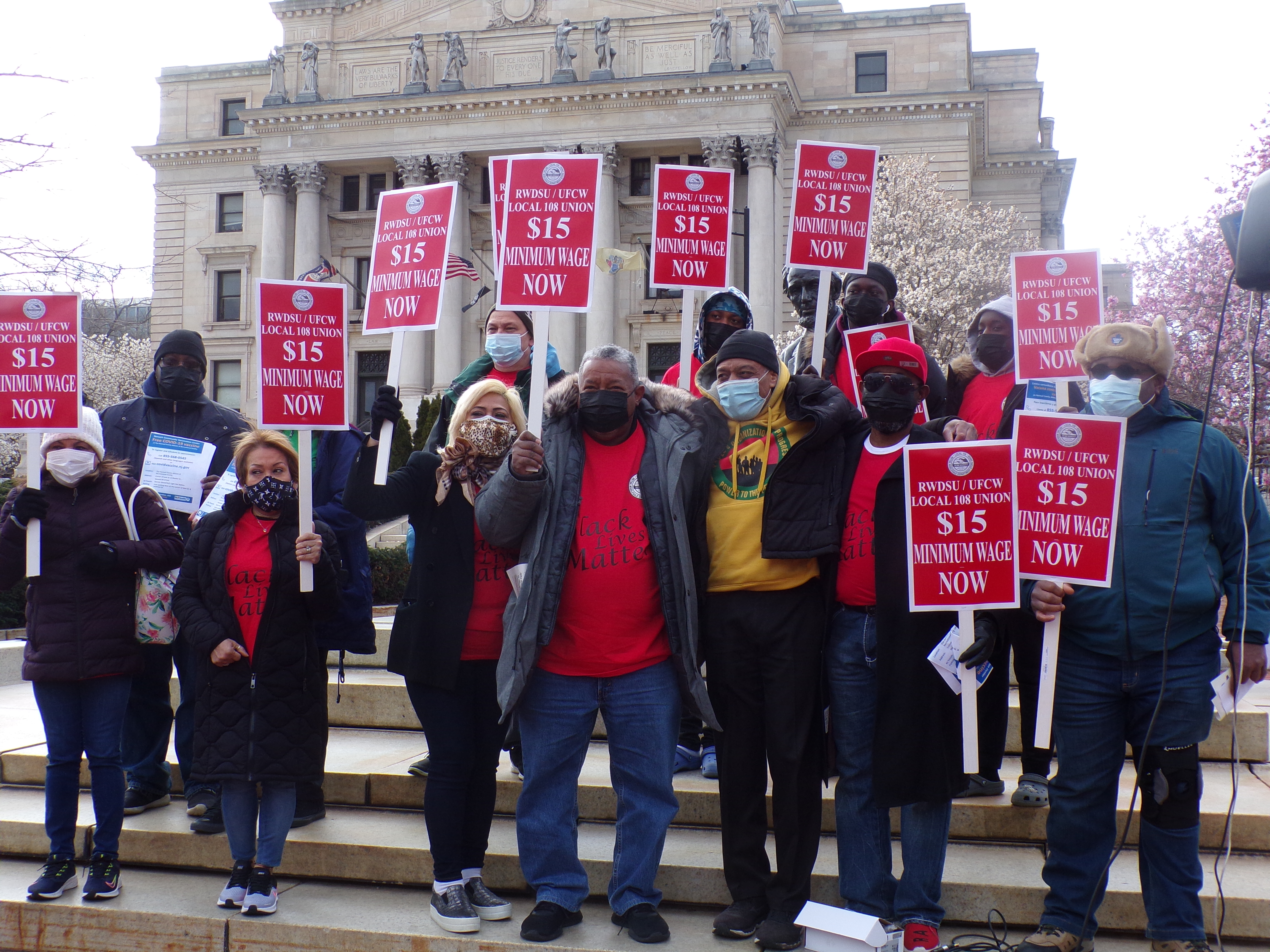
NEWARK - Ahead of the fifty-third anniversary of the assassination of Dr. Martin Luther King, Jr., and day five of the Derek Chauvin murder trial in Minneapolis, activists intent on justice for George Floyd marched down Market Street, additionally motivated by a confluence of deepening justice deprivations, including new cutthroat measures to stymie working class voters in Georgia, and the lack of a federal living wage.
Former cop Chauvin is standing trial for killing George Floyd in a horrific and widely viewed episode last year that propelled millions of outraged Americans into streets, among them People's Organization for Progress (POP) leader Larry Hamm.
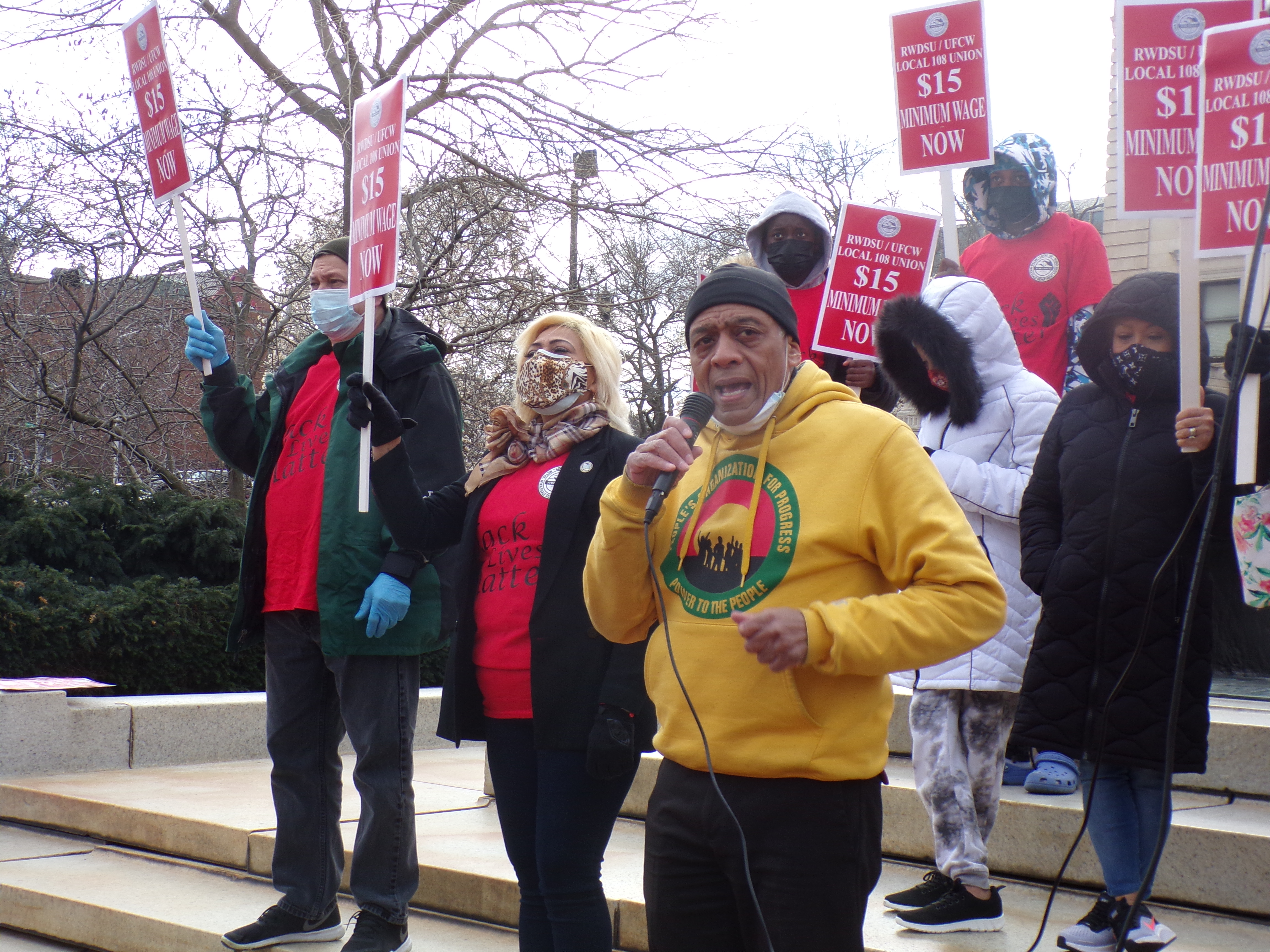
Hamm, along with is friend, labor leader Charles Hall, president of Local 108, which represents department store workers, led the Newark march from the Essex County Hall of Records. They and others are worried that the Chauvin case will end up with a hung jury and Floyd's killer will go free. The weekend anniversary of Dr. King's murder on April 4th, 1968 marked a moment for the activists here to again stand not only with Floyd, but with working people trying to survive without a living wage, on the heels of a new law in Georgia cooked up by Republicans to flatten the Black vote, which propelled Joe Biden to victory last year over Donald Trump by 11,779 votes in the usually reliably red state.
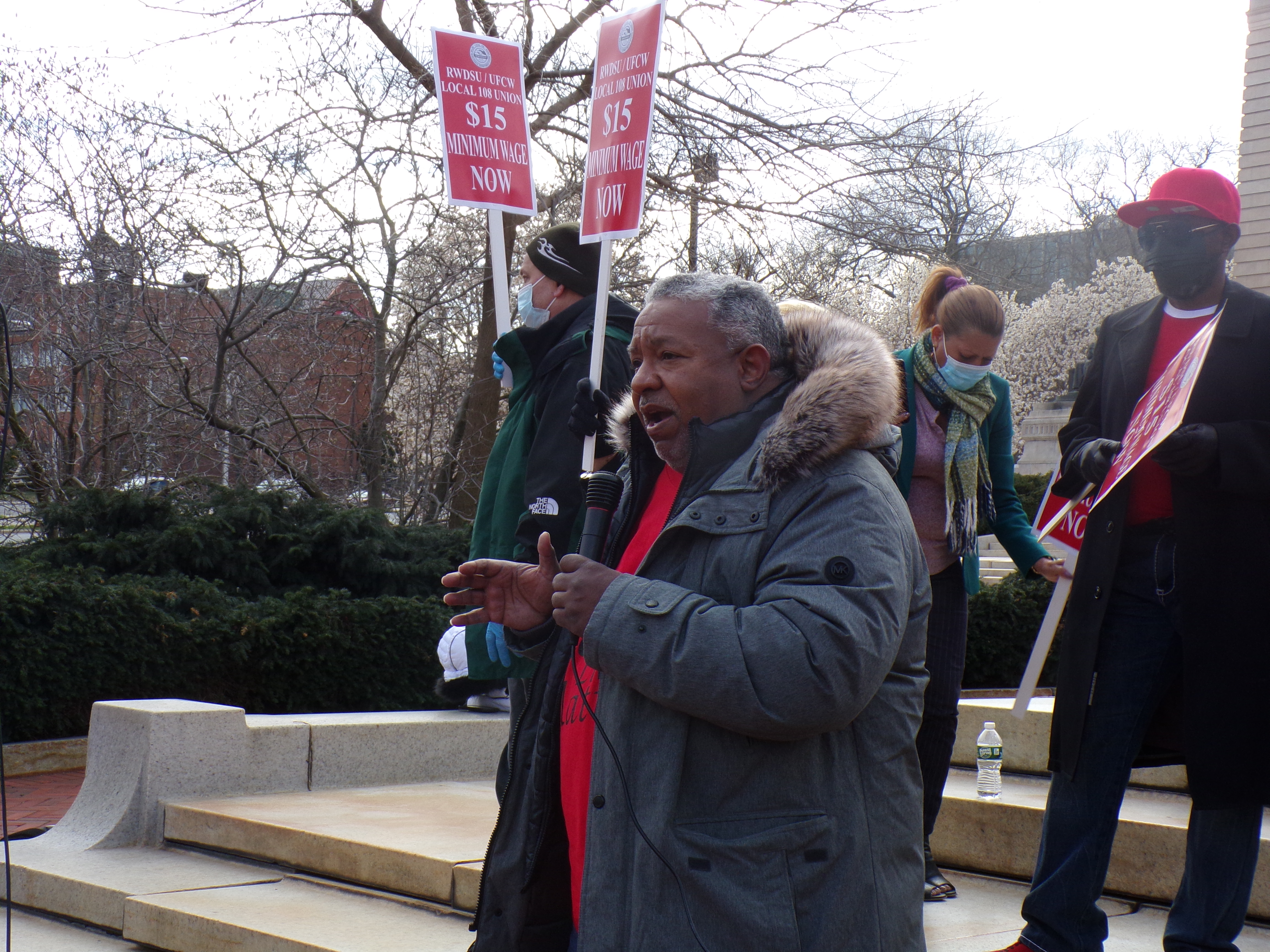
"What defense in the world is there for you to put your knee on someone's neck for nine minutes?" asked Hall, like Hamm a native Newarker. "There [is] no defense. They want to say 'he's a sick man, maybe he used drugs.' That's not the reason. It should be a one day trial. All of them should go to jail. Each and every one of them. Civil rights groups are forcing the trial. Make no mistake, they'd let him go without pressure applied. We got to keep on marching, keep on talking about what's going wrong."
Part of what's wrong, said the Good Friday activists, is that the the current federal minimum wage stands at $7.25 per hour and has not been raised in over 10 years. A full-time federal minimum wage worker today earns 18% less than what her counterpart earned at the time of the last increase, after adjusting for rising costs of living ($15,080 annually in 2021 versus $18,458 in 2009). Governor Phil Murphy in 2020 welcomed New Jersey’s second statewide minimum wage increase from $10 to $11 per hour. The increase represented part of a gradual increase in the minimum wage to $15/hour under legislation signed by Murphy in February 2019. When Governor Murphy took office in 2018, the State’s minimum wage was $8.60 per hour.
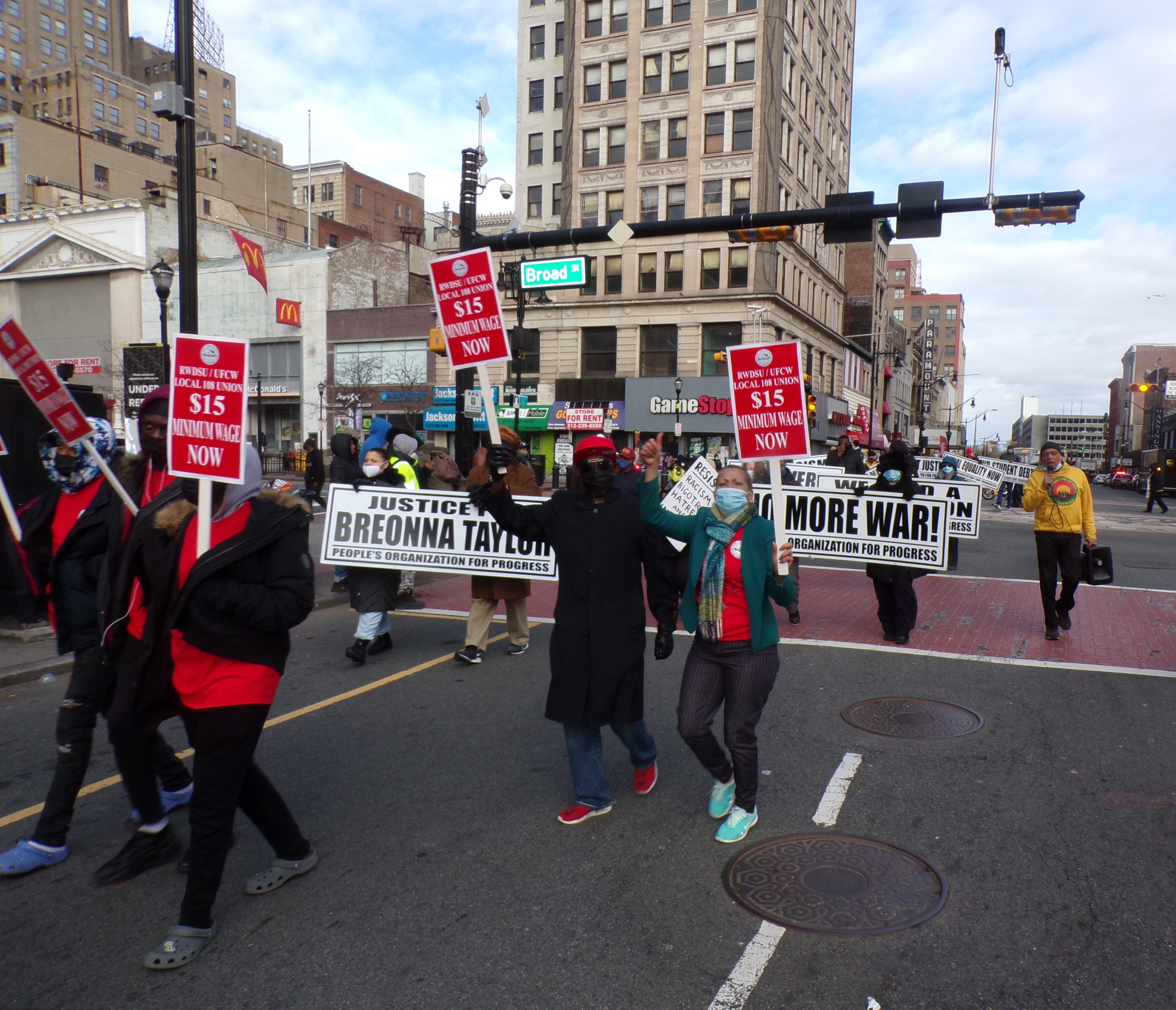
Hamm and his POP allies say the Raise the Wage Act of 2021 (H.R. 603), which would gradually increase the federal minimum wage to $15 over five years, doesn't go far enough.
"We don't want it phased in," said the activist leader. "By the time they phase it in, we'll need $30 an hour. We want a doubling of what it is now. A minimum wage of $15 has a consensus of support across the country."
Hamm and Hall also took aim at Georgia's new law, which cuts the time in which a voter can request a absentee ballot from nearly six months before an election to less than three, in a state in which 1.3 million Georgians — about 26 percent of the state’s electorate — voted with absentee ballots.
In addition, according to a New York Times analysis of the new law:
- It’s now illegal for election officials to mail out absentee ballot applications to all voters.
- Drop boxes still exist … but barely.
- Mobile voting centers (think an R.V. where you can vote) are essentially banned.
- Early voting is expanded in a lot of small counties, but probably not in more populous ones.
- Offering food or water to voters waiting in line now risks misdemeanor charges.
- If you go to the wrong polling place, it will be (even) harder to vote.
- If election problems arise, a common occurrence, it is now more difficult to extend voting hours.
- With a mix of changes to vote-counting, high-turnout elections will probably mean a long wait for results.
- Election officials can no longer accept third-party funding (a measure that nods to right-wing conspiracy theories).
- With an eye toward voter fraud, the state attorney general will manage an election hotline.
- The Republican-controlled legislature has more control over the State Election Board.
- The secretary of state is removed as a voting member of the State Election Board.
- The G.O.P.-led legislature is empowered to suspend county election officials.
- Runoff elections will happen faster — and could become harder to manage.
"We want an end to voter suppression and especially black voter suppression in America," said Hamm. "We thought this matter was settled in 1965 with the passage of the Voting Rights Act, but that is not the case. Three-hundred and sixty-one (361) bills have been introduced since Jan. 1st in 47 states to, in fact, limit people's right to vote, to suppress the vote, particularly black people, brown people, minorities, and Democrats in general, because all these bills have been proposed by Republicans."
The bills came out of debunked accusations made by 2020 loser Trump about widespread voter fraud.
"I was born into Jim Crow, and what is going on right now is worse than Jim Crow," said Hamm. "We are here to say, 'We are not going back.' We fought. We bled, and we died for all social progress, and we're going to fight."
Earlier this week, Assemblyman Roy Freiman (D-16) announced his intentions to move on a bill in the

New Jersey State Legislature to prevent state funds from being used in connection with events in Georgia and/or other states pursuing similar legislation. The assemblyman from Hillsborough commended Murphy for expanding access to voting in New Jersey, but refused to stay in his state lane on a matter as intrinsic to the bedrock of the country as the right to vote. “We can sit back and say ‘isn’t it great to live here in New Jersey as it relates to that,’ but I think we have a moral obligation to stand up and support the people of Georgia,” Freiman added. “I’m a legislator here in New Jersey and there are some things we can do."
Standing in front of the famed Gutzon Burglum statue of Abe Lincoln in Newark, Hall and Hamm were incredulous.
"Racism is alive and well over our country and man, has it manifested itself today," said Hall. "We're carrying signs for $15 - whether it was $15, 18, 25. Think about this. The federal minimum wage is $7.25. Your rent went up, gas, grocery bill, everything but salaries wet up.
"Something is wrong," added the labor leader, "and I think it's all part of the whole thing to keep us down. But we have to rise up and say something about it. We need a $15 minimum wage now."
Mounted Newark Motorcycle Police, their vehicles flashing lights and emitting siren blares to clear the way, headed down Market Street to Broad with the activists behind them, Hamm's voice projected over a microphone.
"George."
"Floyd."
"George."
"Floyd."
Many drivers passing leaned on their horns and waved in support.
Cabbies and bus drivers honked.
"We like that show of support," Hamm called back.
"Man, if it wasn't for you guys, there would be crickets," Hall told his old friend, referring to the ongoing efforts of POP to drive the justice message as the Chauvin trial continues. "I don't see a whole lot of other people out here but Larry continues to fight the good fight," Hall said.
Editor's Note: Photos by Carina Pizarro.
